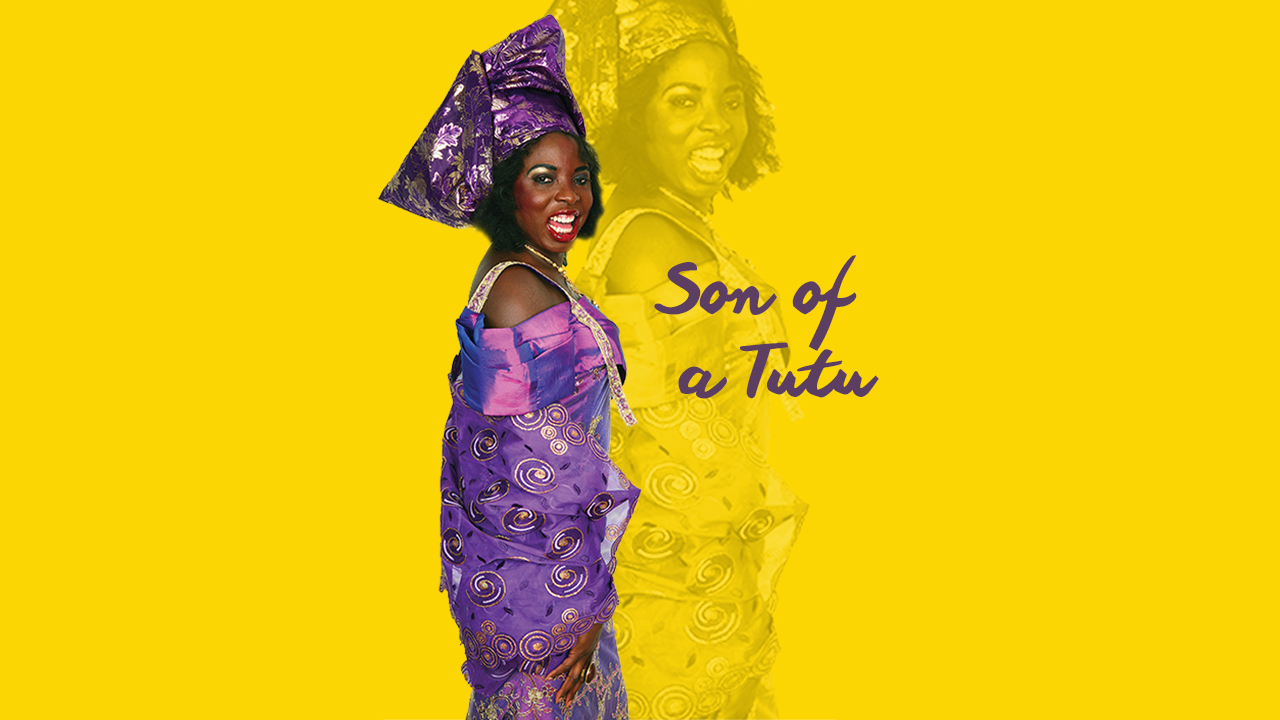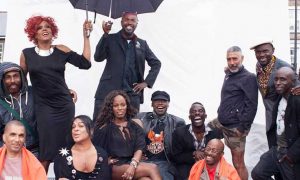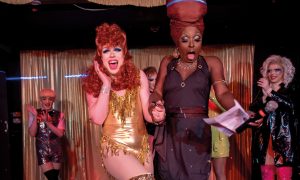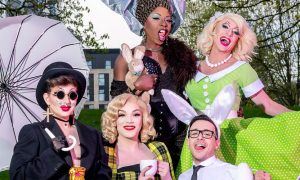Drag supremo Son of a Tutu on racial discrimination

Drag cabaret star Son of a Tutu gives a personal account of how racial tolerance and progress has improved in the UK over the last few decades.
With the advent of Brexit and Donald Trump, one would be forgiven for thinking that our society has never been more polarised along nationalist and racial lines. And in many respects they would be right to think so. Whilst we all lament the reality of and strive to tackle the causes of the current divides, we must not lose sight of the strides made over several decades and generations that have made the multicultural experience healthier now than it has ever been.
I remember noting as a kid little anomalies that I would later in life come to understand to be the forced cultural assimilation practices of my parents’ generation. They included: replacing their given names with anglophile ones and adopting similar ones for their offspring; hair straightening; skin bleaching; and, most curiously, tonal modulation. Most People of Colour (PoC) in the 1960s and 70s were either students, blue collar workers, or both, and so proportionally had limited economic or social control over their own destiny within the broader society. In addition, the rampant racism and huge cultural differences of those times meant that people of different races typically existed on parallel tracks rather than co-existing together as a vibrant cohesive body politic. These and other factors led the emergence of poor black neighbourhoods and all the social ills they create, and the equally corrosive de facto subjugation of PoC interests and identities to those of the white majority.
By the mid 80s a new generation – my generation – of British born university-educated sons and daughters of immigrants emerged with a keen social awakening and growing financial empowerment; integration was afoot, sowing the seeds of multiculturalism as opposed to assimilation, which had hitherto been the order of the day. Like all change, this was met with some considerable resistance: words like ‘coconut’ and ‘bounty’ were used to describe someone whose darker skin colour was deemed merely skin deep; interracial relationships were frowned upon and discouraged on both sides; on the scene, there was a larger than average proportion of interracial couplings that involved an older white gentleman with a younger black man, both rejects of the young white gay aesthetic standard; and pub cabaret was notoriously, but not completely, oppressive with humour laden with casual and not-so-casual (depending on the act) racial and misogynistic tones.
Our generation of PoC – unlike our parents, who suffered in silence – became desensitised to these troublesome infractions and had come to accept them as being the norm. It was the era of blacked-out pub windows and Section 28, and the world was still oppressive for all LGBTQI folk, but more so for the minorities within the minority. At the time, the bigger dragons of aggressive homophobia and racism within the larger society needed slaying by white and black together, and so dealing with intra-LGBT problems and infractions had to wait.
My generation birthed the millennials. ‘Black millennials’ are, or have grown up with, the well-educated middle class offspring of mostly middle class parents; they are as articulate, socially aware, self-determining and entitlement-insistent, as their white counterparts, many of whom are allies in the quest for complete equality and mutual respect. They, unlike their forbears, did not suffer the indignities and spiritual-handicap of blind cultural assimilation, and their sense of entitlement is at complete odds with the issue of ‘white privilege’, which has now been thrust firmly to the top of the list in the ongoing debate. This has either led to introspection and adjustment by open minded people, or resistance from those who are change averse: a backlash against what is deemed over policing of ‘political correctness’ wages war with attempts at placing a complete moratorium on all forms of cultural appropriation; ‘political movements’ do battle with ‘political movements’ with Corbyn and Sanders in the red corner and Farage and Trump in the other; cabaret acts adjust their material or risk falling out of favour or complete banishment; preference fights prejudice on Grindr and other dating apps. Now we are in the epicentre of the fight for the heart and soul of our multiculturalism and social cohesion.
As fractious as all this sounds, the structural fine-tuning occurring at its core fills me with optimism and hope, which helps alleviate the dread, pain and rigours of its process. Change is good: we should be open minded and respond to each other’s expressed grievances – the age of the dominant group defining for another what is offensive and what is not is over. Similarly, the change champions should be mindful not to overprescribe the very remedies that are designed to heal – are all manifestations of cultural appropriation bad, or merely the ones with malicious intent and/or lazy constructs? We should universally celebrate each other’s differences and pay no mind to caricatures designed to ridicule or denigrate the other and, instead, lampoon the absurdity of bigotry and intolerance.













